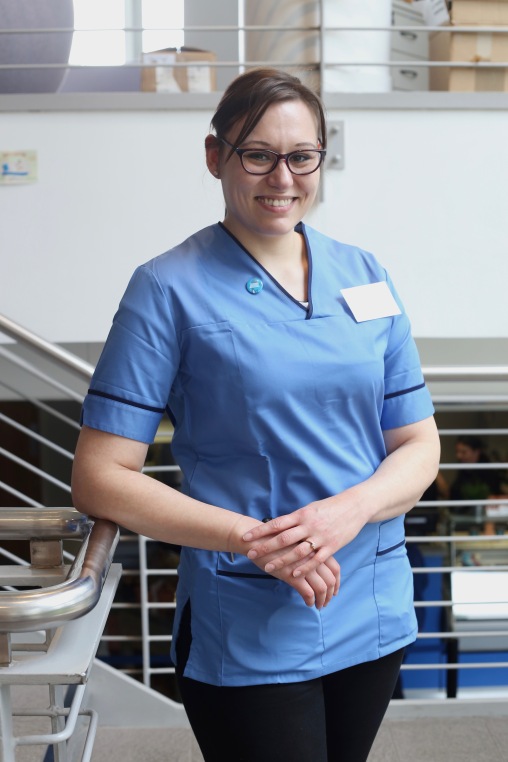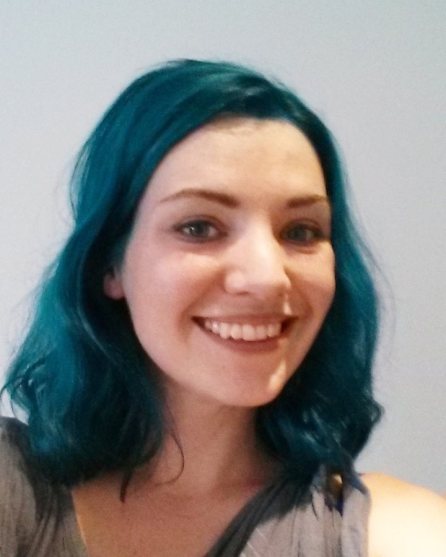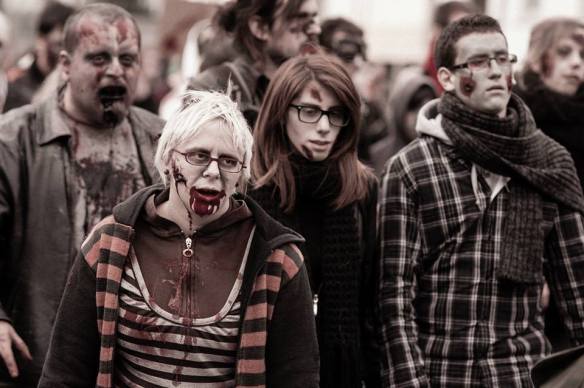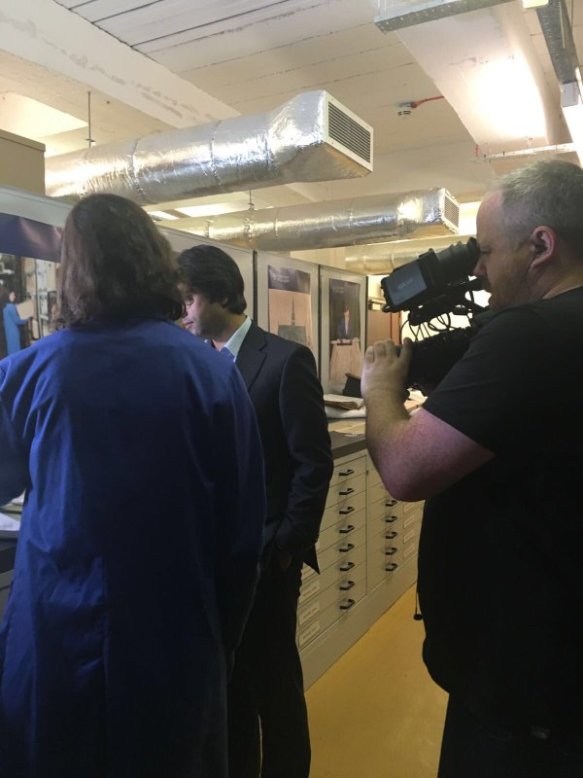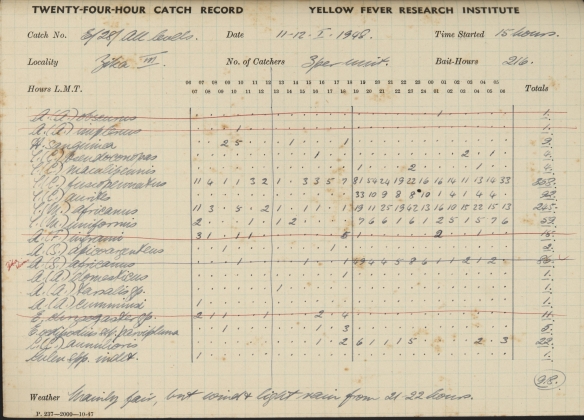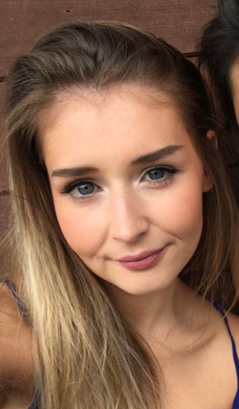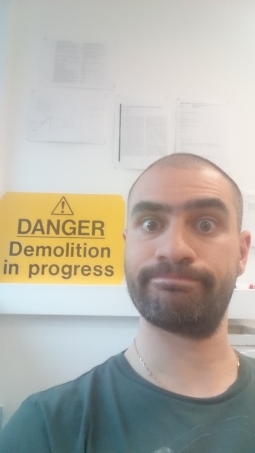Antibiotic resistance and the emergence of so-called ‘superbugs’ pose a growing threat to public health. But who is creating the problem? And whose responsibility is it? At this year’s Glasgow Science Festival, a team of researchers from Glasgow Caledonian University will shed light on this important issue through fun, interactive debate.
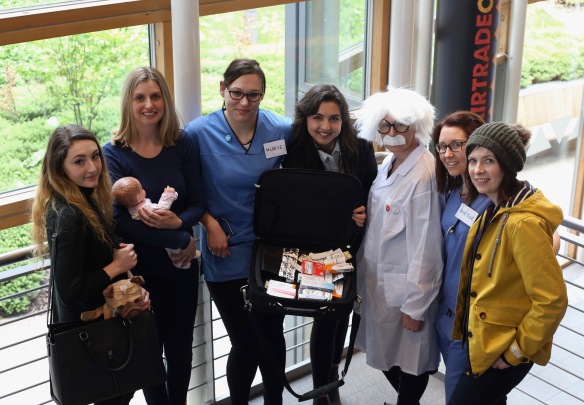
1. Who are you and what do you do?
Mairi – I’m a researcher at Glasgow Caledonian University (GCU) researching public awareness of antimicrobial resistance.
Caroline – I’m also a researcher at GCU using social science to shine a light on complicated public health issues, like antibiotic use and resistance.
Jen – I’m a researcher at GCU using psychological theory to understand behaviours, such as hand hygiene, which have an important role in tackling the issue of antimicrobial resistance.
Lauren – I am also a PhD student at GCU, researching knowledge, beliefs and perceptions related to the acceptability of rapid diagnostics for antibiotic use and resistance.
Ellie – I’m a PhD student at GCU, researching public knowledge, attitudes and behaviours around antibiotic use and resistance.
2. What brings you to Glasgow Science Festival this year?
Mairi – I’m keen to engage with people from all different backgrounds, and raise their awareness to the issue of superbugs’ resistance to antibiotics.
Caroline – I’m really excited to work with a great team of social scientists to share our research findings about antibiotic use and resistance, a topic which is relevant to us all.
Jen – Glasgow Science Festival is a unique opportunity for us to spread the word about our research to a different audience and engage with members of the public around the issue of antimicrobial resistance.
Lauren – I think the festival will be a perfect opportunity to engage with the wider community. AMR (antimicrobial resistance) affects everyone and it is so exciting to be able to share our research with the public.
Ellie – I believe many health issues can be targeted by educating the public and raising their awareness of what can happen when certain behaviours and habits persist. Taking part in an event such as this means I get to play an active role in enhancing the public’s awareness, younger individuals and families.
3. Why should we come to your event?
Mairi – We’re focusing on a serious public health issue, but doing so in an interactive and light-hearted way. This event will give you the chance to understand how superbugs are becoming resistant to antibiotics, and what role we all play in safeguarding antibiotics for the future.
Caroline – The ‘Superbugs’ debate is going to be a great fun event. There’ll be a chance to hear lots of different perspectives on AMR (e.g. health, pharmaceutical, agricultural). You’ll then be given the chance to make up your own mind about AMR and what can be done – and to vote to let us know!
Lauren – The event will be a fantastic opportunity to hear different views on a global health problem. The night will be fun and interactive but will also offer you the chance to have your say! Hope to see you there!
Ellie – When people think about the issue of antimicrobial resistance, they seem to only look at it from the point of views of human health. However, there are many other processes in a variety of areas which contribute to this issue, such as agriculture and farming. Our event will bring all of these factors together in a fun way through role-play and public involvement in a lively debate.
4. This year’s festival theme is ‘Glasgow Explores’. Where would you like to explore?
Mairi – Human reasoning (on a sub-conscious and conscious level) and how it leads to behaviour.
Caroline – I’d like to explore what solutions we create when the great minds of Glasgow and beyond come together to creatively engage with a problem like AMR!
Jen – I’d like to explore what members of the public know about the issue of antimicrobial resistance and discuss the ways in which we all can make small changes to our behaviour to safeguard antibiotics for the future.
Lauren – In my own research, I am hoping to find acceptable ways to reduce the AMR crisis and I cannot wait to hear what people have to say about AMR.
Ellie – I’d love to explore how cultural norms affect the way people think about certain health issues, and how this then translates into behaviour.
5. What’s the best thing about being a scientist?
Mairi – Contributing to tackling serious public health issues, and the creativity that comes with the research.
Caroline – Like Mairi, I love the creativity involved in being a social scientist – the chance to explore, think about and impact upon public health problems is a real privilege.
Jen – Learning about and exploring aspects of human behaviour related to health and working as part of a wider team to help people change their health behaviours, in turn, contributing to important public health issues, such as antimicrobial resistance.
Lauren – The best thing for me would have to be discovering new things every day. Research lets you answer the tough questions and helps to reduce burden from health crisis’ such as AMR.
Ellie – This is quite a tough question because I pretty much love everything about it- from learning about what has been done, to taking that information and using it to find out more about the subject. There’s variation because your data leads you in many different directions too, and I think that is very exciting!
Join Mairi, Caroline, Jen, Lauren and Ellie for ‘Whose Superbug Crisis Is It Anyway?’ on Thursday 8 June at Glasgow Caledonian University. The free event begins at 6pm. For full details and booking, visit the website.
